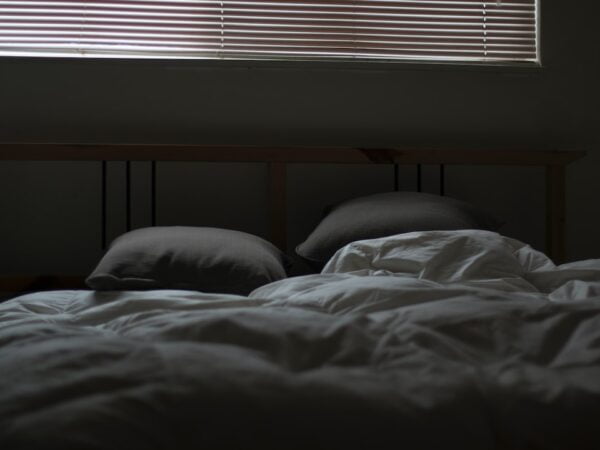
The impact of sleep on athletic performance and recovery
Sleep is a fundamental aspect of human life, and it plays a crucial role in our overall health and well-being. For athletes, sleep is even more important as it directly impacts their performance on the field or court. Adequate sleep allows athletes to recover from intense training sessions, repair and rebuild muscles, and maintain good mental health. On the other hand, lack of sleep can have detrimental effects on athletic performance and overall health.
Key Takeaways
- Sleep is crucial for athletes to perform at their best and maintain good health.
- Understanding the stages and cycles of sleep can help athletes optimize their rest.
- Sleep deprivation can have negative effects on athletic performance, including decreased reaction time and endurance.
- Sleep plays a vital role in muscle recovery and rebuilding after exercise.
- Napping can boost alertness and performance for athletes, but it should be done strategically to avoid disrupting nighttime sleep.
The Science of Sleep: Understanding the Stages and Cycles
To understand the importance of sleep for athletes, it is essential to have a basic understanding of the science behind sleep. Sleep is divided into different stages and cycles, each serving a different purpose in the body. The two main types of sleep are rapid eye movement (REM) sleep and non-rapid eye movement (NREM) sleep.
NREM sleep is further divided into three stages: N1, N2, and N3. N1 is the lightest stage of sleep, where we transition from wakefulness to sleep. N2 is a deeper stage of sleep where our brain waves slow down, and our body temperature drops. N3 is the deepest stage of sleep, also known as slow-wave sleep (SWS), where our body repairs and regenerates tissues, builds bone and muscle, and strengthens the immune system.
REM sleep is characterized by rapid eye movements, increased brain activity, and vivid dreaming. During REM sleep, our brain processes emotions and memories, and it is essential for learning and creativity.
Sleep Deprivation and Athletic Performance: The Negative Effects
Lack of sleep can have significant negative effects on athletic performance. One study published in the journal Sleep found that athletes who slept less than 8 hours per night had a 1.7 times higher risk of injury compared to those who slept 8 hours or more. Sleep deprivation can lead to decreased reaction time, impaired decision-making, and reduced endurance.
When we are sleep deprived, our cognitive function is compromised, making it harder to concentrate and make quick decisions. This can be particularly detrimental for athletes who need to react quickly and make split-second decisions during a game or competition. Lack of sleep also affects our physical performance by reducing our endurance and strength. Studies have shown that sleep deprivation can lead to decreased muscle glycogen stores, impaired glucose metabolism, and increased levels of the stress hormone cortisol.
The Role of Sleep in Athletic Recovery: Repairing and Rebuilding Muscles
One of the most important roles of sleep for athletes is its role in recovery. During sleep, the body repairs and rebuilds muscles that have been damaged during intense training sessions. This process is crucial for muscle growth and overall athletic performance.
During slow-wave sleep (SWS), the body releases growth hormone, which stimulates muscle growth and repair. This hormone helps to repair damaged tissues, build new muscle fibers, and strengthen existing ones. Without adequate sleep, the body does not have enough time to go through this restorative process, leading to decreased muscle recovery and increased risk of injury.
The Benefits of Napping for Athletes: Boosting Alertness and Performance
In addition to getting enough sleep at night, napping can also be beneficial for athletes. Napping has been shown to improve alertness, cognitive function, and physical performance. Short naps of 20-30 minutes can help athletes recharge their energy levels and improve their focus before a training session or competition.
Napping can also be particularly beneficial for athletes who have early morning or late-night training sessions. If an athlete has to wake up early for a morning practice or stay up late for a game, taking a nap during the day can help them compensate for the lost sleep and improve their performance.
The Connection between Sleep and Mental Health for Athletes

Sleep is not only important for physical health but also for mental health. Lack of sleep can have a negative impact on mood, cognitive function, and overall mental well-being. Studies have shown that sleep deprivation can lead to increased feelings of irritability, anxiety, and depression.
When we are sleep deprived, our brain does not have enough time to process emotions and regulate mood. This can lead to increased emotional reactivity and decreased ability to cope with stress. Lack of sleep also affects our cognitive function, making it harder to concentrate, remember information, and make decisions.
Sleep Strategies for Athletes: Tips for Improving Sleep Quality and Quantity
To optimize sleep quality and quantity, athletes can implement various strategies:
1. Establishing a regular sleep schedule: Going to bed and waking up at the same time every day helps regulate the body’s internal clock and improve sleep quality.
2. Creating a sleep-conducive environment: Make sure your bedroom is dark, quiet, and cool. Use blackout curtains or an eye mask to block out any light, wear earplugs or use a white noise machine to drown out any noise, and set the thermostat to a cool temperature.
3. Avoiding caffeine and alcohol before bedtime: Caffeine is a stimulant that can interfere with sleep, so it’s best to avoid consuming it in the afternoon or evening. Alcohol may make you feel drowsy initially but can disrupt your sleep later in the night.
Sleep Disorders and Athletes: Identifying and Treating Sleep Apnea, Insomnia, and Other Issues
Sleep disorders can have a significant impact on athletic performance and overall health. Two common sleep disorders among athletes are sleep apnea and insomnia.
Sleep apnea is a condition characterized by pauses in breathing during sleep. It can lead to fragmented sleep, daytime sleepiness, and decreased cognitive function. Athletes with sleep apnea may experience decreased endurance, reduced reaction time, and impaired decision-making.
Insomnia is a sleep disorder characterized by difficulty falling asleep, staying asleep, or both. It can be caused by various factors, including stress, anxiety, and poor sleep habits. Athletes with insomnia may experience decreased performance, increased risk of injury, and impaired recovery.
If an athlete suspects they have a sleep disorder, it is important to seek medical attention and undergo a sleep study for proper diagnosis and treatment.
The Impact of Travel and Time Zone Changes on Athlete Sleep
Traveling and time zone changes can disrupt an athlete’s sleep schedule and have a significant impact on their performance. Jet lag occurs when our internal body clock is out of sync with the new time zone we are in. This can lead to difficulty falling asleep at night, daytime sleepiness, and decreased cognitive function.
To minimize the impact of travel on sleep, athletes can implement the following strategies:
1. Adjusting sleep schedules: Gradually shift your sleep schedule a few days before traveling to align with the new time zone.
2. Using light therapy: Exposure to bright light in the morning can help reset your internal body clock and adjust to the new time zone more quickly.
3. Avoiding excessive caffeine and alcohol: Both caffeine and alcohol can disrupt sleep, so it’s best to avoid consuming them close to bedtime, especially when traveling.
Prioritizing Sleep for Optimal Athletic Performance and Health
In conclusion, sleep is a critical component of an athlete’s training and recovery plan. Adequate sleep allows athletes to perform at their best, recover from intense training sessions, repair and rebuild muscles, and maintain good mental health. Lack of sleep can have detrimental effects on athletic performance and overall health.
Athletes should prioritize getting enough sleep at night and consider incorporating napping into their routine to improve alertness and performance. They should also implement strategies to improve sleep quality and quantity, such as establishing a regular sleep schedule, creating a sleep-conducive environment, and avoiding caffeine and alcohol before bedtime.
Identifying and treating sleep disorders is essential for athletes to optimize their sleep and overall health. Additionally, athletes should be mindful of the impact of travel and time zone changes on their sleep and implement strategies to minimize jet lag.
By prioritizing sleep, athletes can enhance their performance, reduce the risk of injury, and maintain good physical and mental health. Sleep should be seen as an integral part of an athlete’s training and recovery plan, just as important as nutrition and exercise.
If you’re interested in learning more about the impact of sleep on athletic performance and recovery, you might find this article from Wave Magnets intriguing. Wave Magnets is a website that offers innovative solutions for enhancing sleep quality and overall well-being. Their article, titled “The Science Behind Sleep and Athletic Performance,” delves into the importance of sleep for athletes and how it can affect their physical and mental abilities. To explore this fascinating topic further, check out the article on their website: https://wavemagnets.com/sample-page/.
FAQs
What is the impact of sleep on athletic performance?
Sleep plays a crucial role in athletic performance as it helps in muscle recovery, memory consolidation, and hormone regulation. Lack of sleep can lead to decreased reaction time, decreased endurance, and increased risk of injury.
How much sleep do athletes need?
Athletes require more sleep than the average person, with most needing between 7-9 hours of sleep per night. However, some athletes may require up to 10 hours of sleep per night to fully recover and perform at their best.
What are the consequences of sleep deprivation on athletic performance?
Sleep deprivation can lead to decreased reaction time, decreased endurance, and increased risk of injury. It can also negatively impact mood, cognitive function, and decision-making abilities.
How does sleep affect muscle recovery?
During sleep, the body releases growth hormone, which is essential for muscle recovery and repair. Lack of sleep can lead to decreased levels of growth hormone, which can slow down muscle recovery and increase the risk of injury.
What are some tips for athletes to improve their sleep?
Some tips for athletes to improve their sleep include establishing a consistent sleep schedule, creating a relaxing bedtime routine, avoiding caffeine and alcohol before bedtime, and creating a sleep-conducive environment (e.g. cool, dark, and quiet room).













